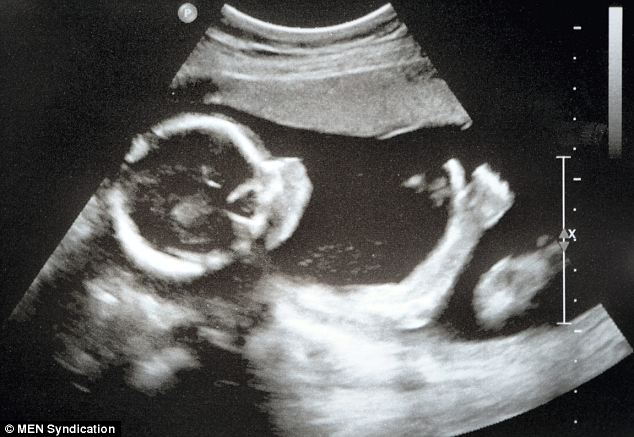Ohio appears poised to pass a bill banning abortions once an unborn baby’s heartbeat is detectable.
On Tuesday, the state House Health Committee approved Senate Bill 23 with a new amendment allowing penalties of up to $20,000 for abortionists who violate the legislation, Cleveland.com reports. It passed in an 11-7 vote and now moves to the full state House for a vote.
The state Senate passed the bill in March, and, with Republican majorities in both houses, it is expected to become law. Gov. Mike DeWine supports the bill.
State Senate Bill 23 would prohibit abortions after an unborn baby’s heartbeat is detectable, about six weeks of pregnancy, in Ohio. Because many women do not even know they are pregnant at this early stage, the legislation could protect almost all unborn babies in Ohio if it goes into effect.
Pro-life state Rep. Candice Keller, R-Middletown, spoke out in favor of the bill, saying abortions benefit the abortion industry, not women or families.
“If we are really about empowering the women of Ohio and empowering the women of this country, we will begin to tell the truth about the abortion industry and the enormous amount of profit that is made on the backs of women,” Keller said.
The committee also rejected several amendments by pro-abortion Democrats, including one that would have restored state taxpayer funding to Planned Parenthood, according to the report.
State lawmakers came close to passing similar pro-life legislation in 2016 and 2018, but then-Gov. John Kasich vetoed both bills. This year, with Republicans in control of both state houses and new Gov. Mike DeWine saying he will sign the legislation, it appears likely to pass.
If enacted, the bill could save thousands of unborn babies’ lives. The Ohio Department of Health reported 20,893 abortions in 2017 in the state.
However, NARAL, Planned Parenthood and other pro-abortion groups oppose the heartbeat bill. They are expected to sue the state if it becomes law.
DeWine acknowledged the possibility of a lawsuit in January, but said they will fight for life anyway.
“Ultimately, this will work its way up to the United States Supreme Court. And they’ll make that decision,” he said.
Keep up with the latest pro-life news and information on Twitter. Follow @LifeNewsHQ
This year, pro-life lawmakers have introduced a number of heartbeat bills including in Florida, Georgia, Kentucky, Mississippi, Missouri, Ohio, Tennessee and Texas.
Some pro-lifers have renewed hope that the new conservative-majority U.S. Supreme Court will uphold an abortion ban and overturn Roe v. Wade. Others, however, are hesitant because of concerns about losing the court battle and being forced to reimburse pro-abortion groups for their legal fees.
Recently, a federal judge blocked Kentucky’s new heartbeat bill.
North Dakota and Arkansas passed heartbeat bills several years ago, but federal courts struck down both laws.
The Eighth Circuit Court of Appeals said the following about its ruling on the six-week abortion ban: “Because there is no genuine dispute that (North Dakota’s law) generally prohibits abortions before viability — as the Supreme Court has defined that concept — and because we are bound by Supreme Court precedent holding that states may not prohibit pre-viability abortions, we must affirm the district court’s grant of summary judgment to the plaintiffs.”
The Supreme Court took away the states’ ability to protect unborn babies from abortion under Roe, and instead allowed abortion on demand through all nine months of pregnancy. Roe made the United States one of only seven countries in the world that allows elective abortions after 20 weeks. There is more hope that the new conservative-majority U.S. Supreme Court may consider overturning Roe, but it is difficult to say if it would for certain – especially after Chief Justice John Roberts recently sided with the liberal justices on an abortion case.








